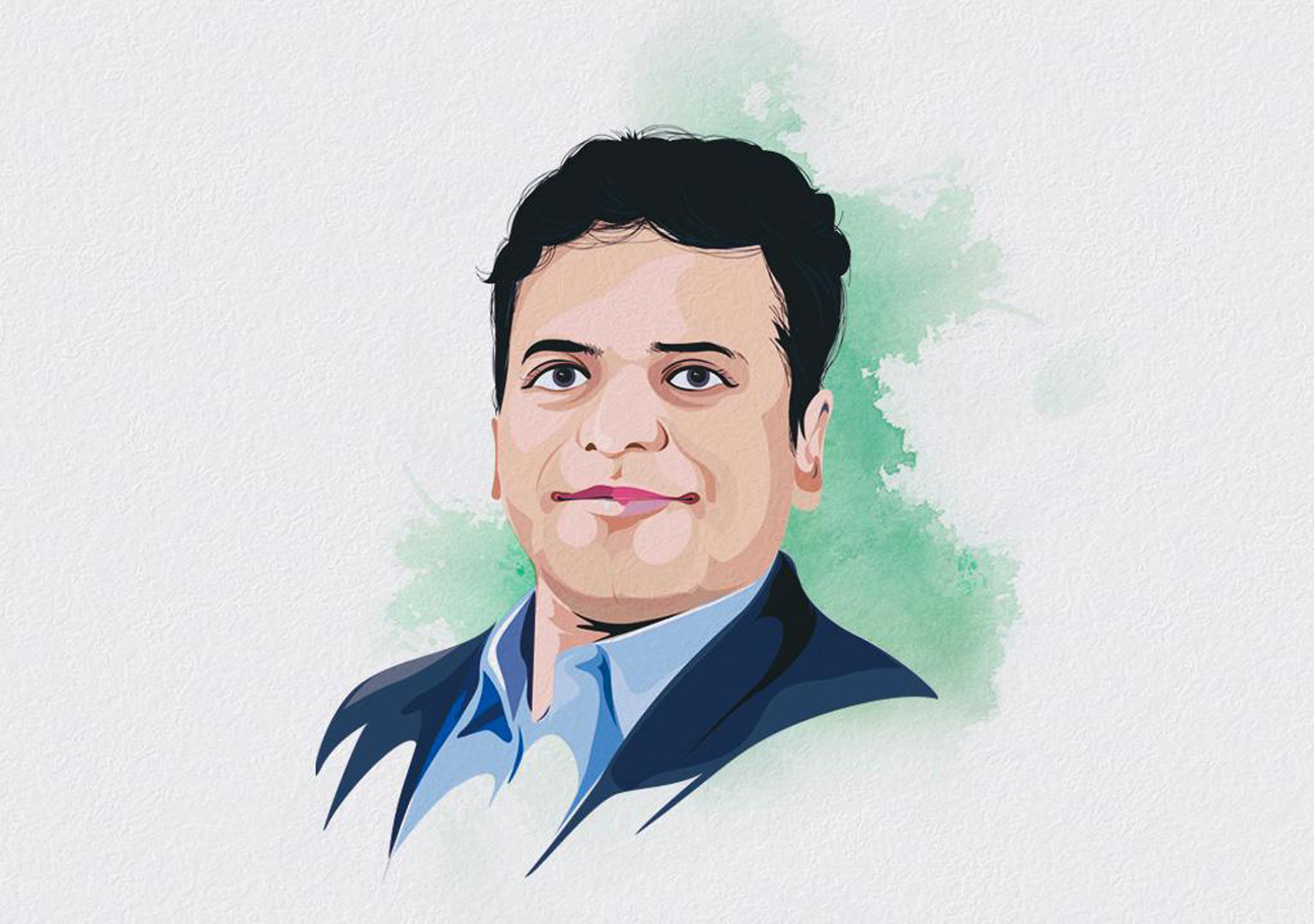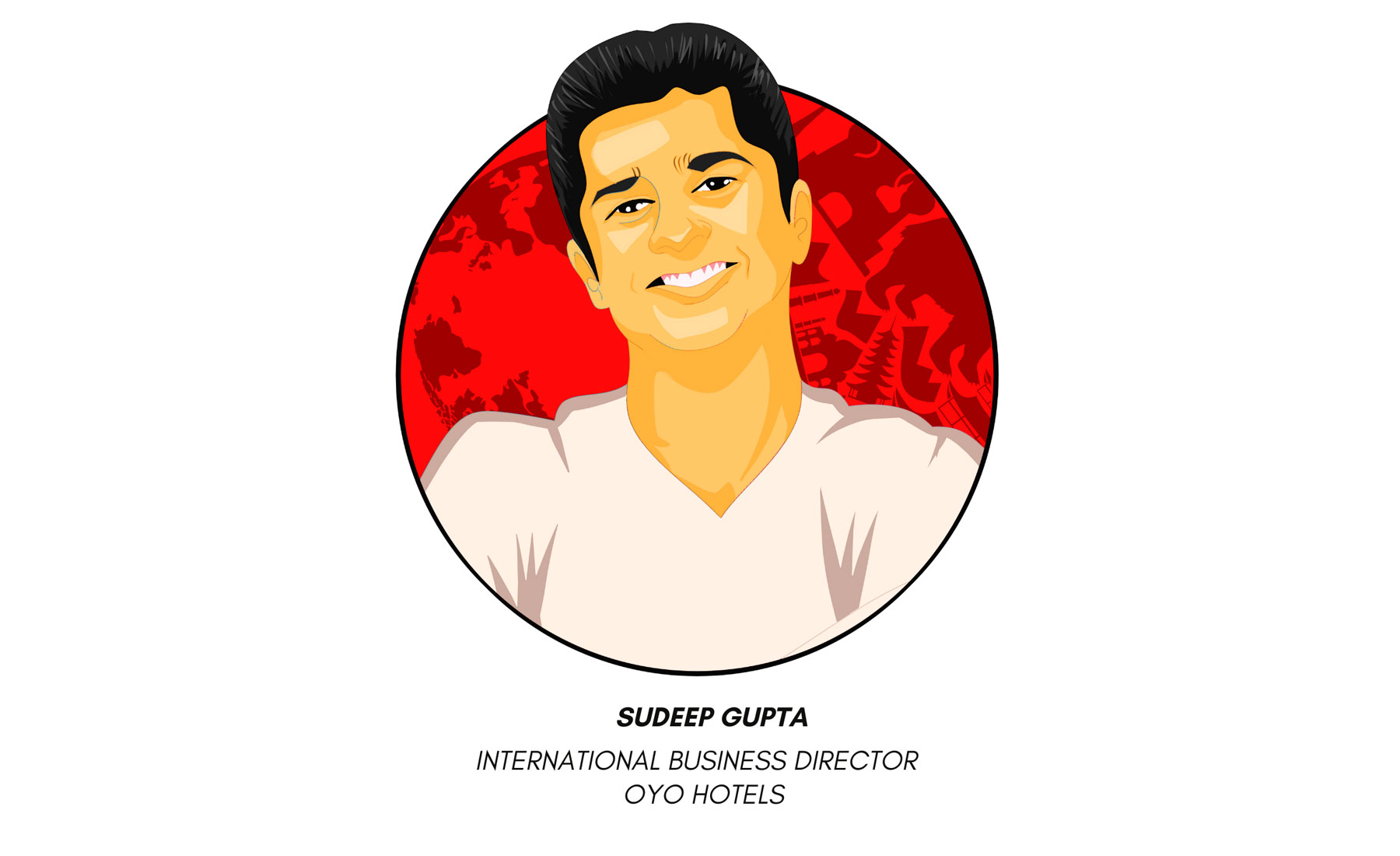Long-term planning is the life insurance of every business. Rahul Agarwal explains why.
Rahul began his career as an insurance agent in Max New York Life, which eventually laid down the foundation of his success story. An expert in marketing, Rahul became an MDRT at the young age of 20, due to his outstanding performance at Max. He eventually went to SP Jain to acquire an MBA degree and then started his own firm, Ideal Insurance, in 2005. Since then, he has devoted his heart and soul in ensuring the growth of his company and establishing it as a popular brand in the insurance industry.
Pinkbull Investors is an Investment Management firm which is metaphorically ‘your financial intelligence’. “Money Stories” is our series that features interesting people talking candidly about their financial & professional lives.
WRITTEN BY PINKBULL INVESTORS ON JANUARY 10, 2021
If truth be told, personally, money never excited me. I come from a decent background and never had to struggle for my basic needs. At the same time, our humble milieu ensured that my father was extremely down-to-earth and did not have any extravagant habits. As a result, I learnt to stay grounded. I still reinvest my earnings and hardly withdraw money for luxurious spends. If I buy a great car, it would be because I love that car and not because I want to show it off. That’s why, I don’t care if I have a billion-dollar company or not. I know that I have a strong company which is going to last. I’m going to consistently earn profits and I think that’s extraordinary!
When I established my business, I didn’t have a mentor to fall back on. Neither did I have ample family support, nor did I have a robust financial backing. I only had a few good books at my disposal like ‘Losing my Virginity’ by Richard Branson – a bible for any entrepreneur – and this other interesting book, ‘Stay hungry stay foolish’ by Rashmi Bansal. So, I read a lot of these biographies and drew inspiration from them.
Therefore, I have always been very conservative in terms of my business strategies because I didn’t have the option to fail. As a consequence, in the initial 5-7 years, the growth of my business was painfully slow. I could not take much risk or hire expensive resources. However, I was building a company strong from within, brick by brick. Today, I can boast of having a team that no other has in this industry and the foundation of my company is remarkably solid.
I still reinvest my earnings and hardly withdraw money for luxurious spends. If I buy a great car, it would be because I love that car and not because I want to show it off. That’s why, I don’t care if I have a billion-dollar company or not. I know that I have a strong company which is going to last. I’m going to consistently earn profits and I think that’s extraordinary!
My belief system is very strong and normally, when I intend to do something, I never have a plan B. This might not be very healthy from a business perspective, but it’s simply the way I work. If I want to do something, I do it! I don’t think of alternatives in case I am to fail. Even when I ventured into the insurance business, I had a particular vision. I was focussed on value-building, rather than making short-term cash. That’s the reason why I could materialise my dreams.
However, the lockdown imposed its own unprecedented challenges. Honestly speaking, while I have businesses which are quite active, I also have businesses which are currently stagnant. For instance, I had a travel firm, my wife looked after, which started incurring losses as there was no business. At the same time, my insurance firm is doing wonderful growth, despite the humongous hit the industry faced due to the pandemic.
Of course, without the lockdown we could have grown much faster! However, I have never been perturbed by this predicament because this situation is not something I can control. Instead, I invested time during the lockdown in learning quite a few new things on digital marketing, improving various aspects of my own company and spending quality moments with my family. In spite of the bad side to it, I still feel that this pandemic period has been one of the best times ever, because it has given us a breather. I generally travel almost 10-15 days a month and I have never had a chance to take a break, look back and analyse what we have been doing. This lockdown has been a great opportunity to get a clear view of things.
I have always been very conservative in terms of my business strategies because I didn’t have the option to fail. As a consequence, in the initial 5-7 years, the growth of my business was painfully slow. I could not take much risk or hire expensive resources. However, I was building a company strong from within, brick by brick. Today, I can boast of having a team that no other has in this industry and the foundation of my company is remarkably solid.
In fact, having gained a better perspective, what we actually did is that, right in the first or second week of the lockdown, we started an extremely aggressive marketing campaign. We realised that this situation was here to stay for long, and we had to device a way to overcome the obstacle and acquire new business.
So, we used some basic marketing practices which turned out to be quite fruitful and helped us in our business expansion, even during this precarious phase. We just accepted the state of affairs and tried to do our best, and even now we are following the same strategy considering the fact that this situation will prevail for some time. We are utilising this time to build up our system processes, making SOPs in the company and fortify our technology. Hence, overall, I’m satisfied with our performance.
Currently, we are focussing aggressively on our partner businesses. During the lockdown we started building a proprietary app through which all our partners can transact with us, seamlessly. This helped us to streamline our business processes and make them more efficient. This is where our growth has truly been.
All the other large insurance companies of the country are struggling to sustain themselves. The market is consolidating. So, we took on this opportunity headon and created a platform wherein they could make all their transactions through us, reaping several benefits in exchange. We did get ample time to prepare ourselves to become Indias largest Insurance aggregator.
My belief system is very strong and normally, when I intend to do something, I never have a plan B. This might not be very healthy from a business perspective, but it’s simply the way I work. If I want to do something, I do it! I don’t think of alternatives in case I am to fail.
However, one can’t forget that for a company like ours, which is scaling even post-pandemic, there are several issues that need to be addressed, like providing employees with a conducive environment to work and setting the right culture for them to grow. Fortunately, my business model is such that it isn’t too dependent on people for system and processes. That’s the least troublesome and most scalable business in the long-term. Even before the pandemic, there were other challenges that we had to face, such as the recent development of the concept of ‘direct-business,’ due to rapid digitalization. Does the sudden rise in the intervention of technology-driven companies in the field of insurance threaten me? Not at all! In fact, the sprouting up of such companies which directly interact with the consumer, using digital means, actually makes me happy!
Whenever there is some kind of a disruption, it brings with it, its own learnings. There are some players who cause this disruption and burn out a lot of money. Yet, they aren’t adequately profitable. First, they must break even and only then will they start incurring profits in another ten years down the line. We have learnt from their mistakes, and created a refined model which is profitable and sustainable. This disruption caused by our competitors has really helped us!
In the Western countries, with a much more evolved market, there’s nothing called a ‘direct business.’ It is a completely broker-dominated industry. They have already gone through such phases of technology-hype.
Even in India, the insurance model will not change for the next 10-15 years. If it does, we will adapt accordingly. We have no problem in acquiring the role of an advisory firm. The thing is, this fetish for technology which facilitates direct business will always survive, driving the smaller players out of the market. We either get annihilated or evolve to the next level, and the latter is what we are trying to achieve. However, I still feel that the insurance market is so huge that even if these technology-driven firms capture a particular section, a huge fraction will always be available for the rest of us.
How many insurance companies function like the US-based Lemonade Inc.? There are hardly any players in the field. If direct business is so lucrative and not capital intensive, what is stopping other players from venturing in? The fact is, even in India, most insurance companies have tried the direct business model, online and offline, and ultimately come to the conclusion that they are simply outsourcing their sales function. As a result, direct business through intermediaries is not exactly profitable.
Technology is only a facilitator. The insurance business is still primarily a distribution-game. How much money have you invested in marketing? How many tele-callers do you have? Each of these factors helps to bag more business. All we need to do is stay focussed on exactly what we want to achieve. Since I am closely associated with the start-up eco-system, having invested a substantial amount in a few promising ventures, I am aghast at how misinformed people are about the success ratio of start-ups. People are unaware that the number of successful start-ups they see are only a fraction of the entire industry, and every year, thousands of businesses are forced to bite the dust.
The thing is, this fetish for technology which facilitates direct business will always survive, driving the smaller players out of the market. We either get annihilated or evolve to the next level, and the latter is what we are trying to achieve. However, I still feel that the insurance market is so huge that even if these technology-driven firms capture a particular section, a huge fraction will always be available for the rest of us.
This misconception has led to the emergence of starry-eyed entrepreneurs who want to mint money, superfast. A recurring concern is that most people have lost the concept of making a profitable business. It’s all about raising money, burning money and increasing valuation. This is an appalling situation! Many large, well funded, startups are at the verge of closing shop. People are building companies which can’t withstand a crisis of 6 months. These companies seem to be on steroids!
A major problem in the way business is done in India lies in its execution. I too face the same issue. I built my system process too late, only to realise that SOPs are essential for small-scale businesses. It is something that must be incorporated right at the start. Also, one factor that is still missing from the way people understand finance, is that they don’t think long-term. They tend to be short-term oriented. If they change their way of thought, the industry would change in multiple ways.
It is essential to build a company with a solid foundation and a robust team – One that can stand the test of time. In Ideal Insurance, we have always been very clear about these basics. Even today, we might not be the largest firm, but we have built a remarkable reputation amongst insurance companies through fair and scrupulous business practices.
Ethics is not something I can barter for anything else. I don’t mind losing money, but I can’t afford to tarnish my reputation in the market. There is no reason to resort to unethical means because India is brimming with business and opulent in terms of capital. I firmly believe, and will always do, that there is never a short-cut or easy road to making profits. True success is only the one which is long-term!
AS TOLD TO KARAN BARMECHA & POONAM DASH. ILLUSTRATION BY KOUSHIK JANA.
WRITTEN BY PINKBULL INVESTORS ON JANUARY 10, 2021



